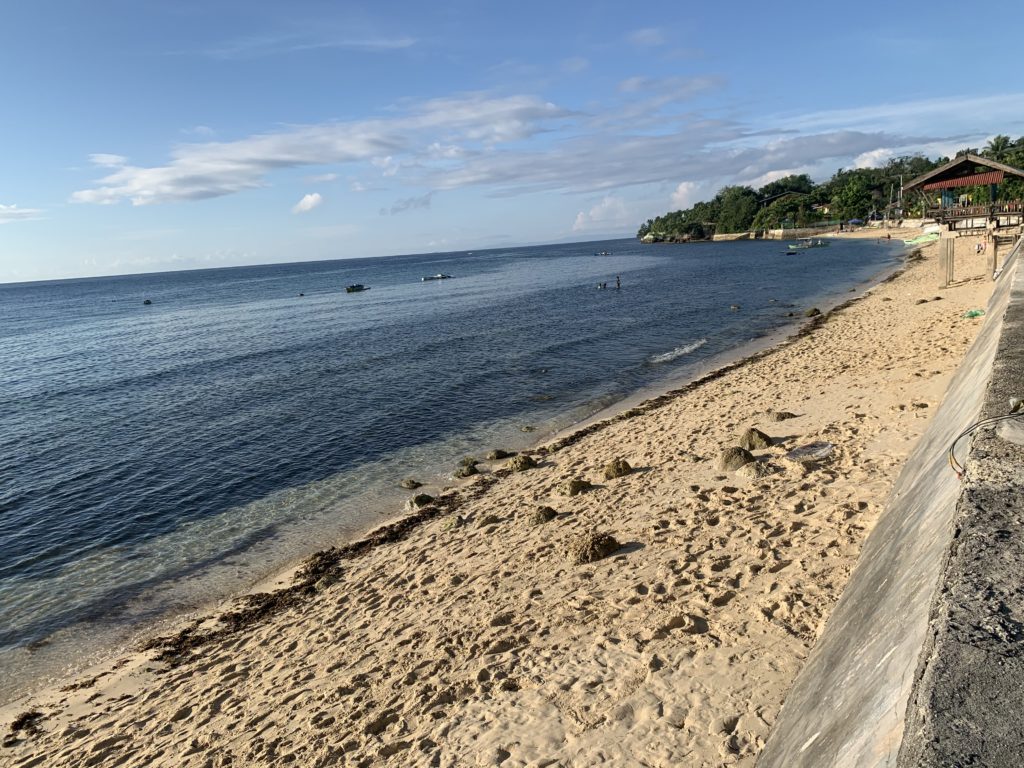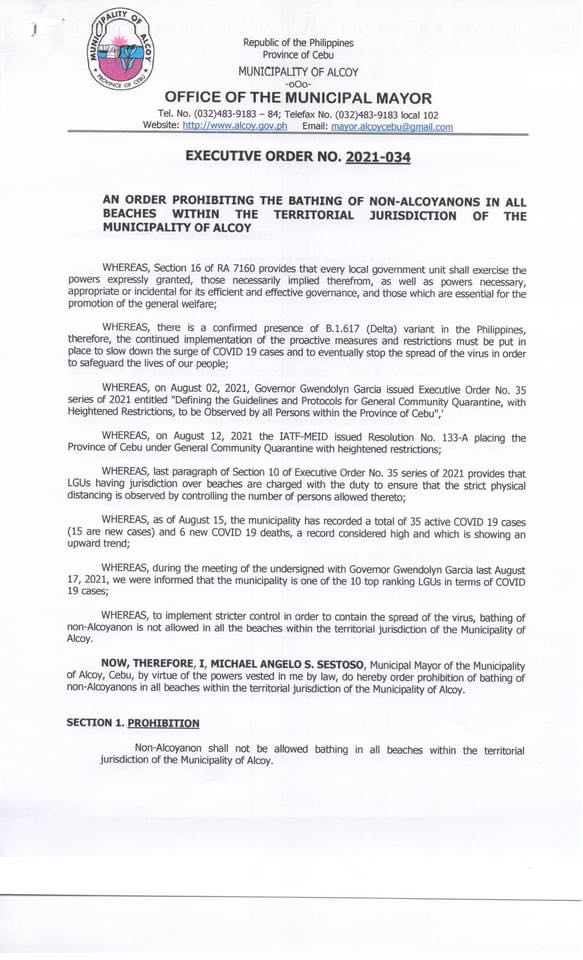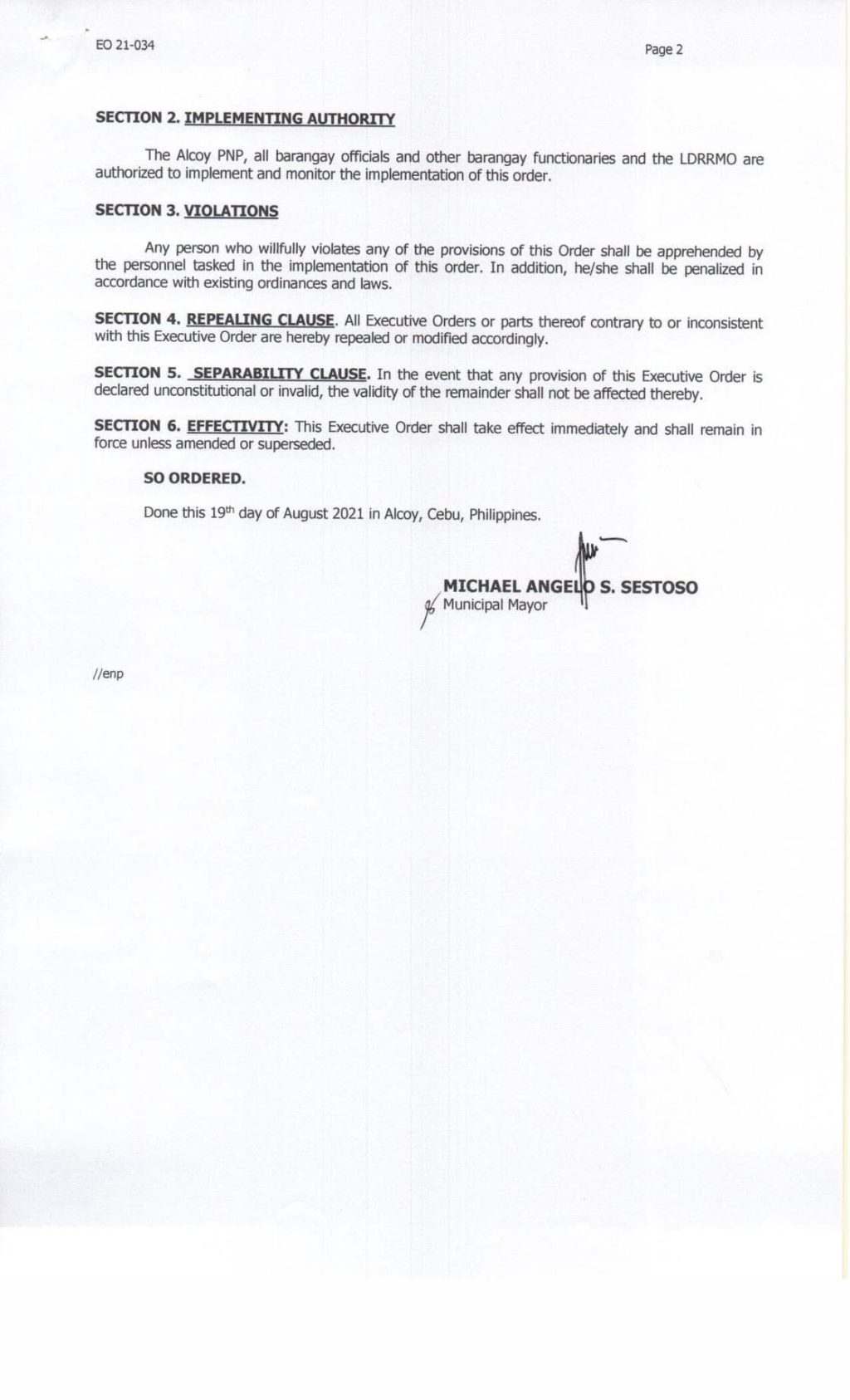Alcoy closes beaches to non-residents

White sand beach in Alcoy town, southern Cebu. CDN Digital photo | Brian J. Ochoa
CEBU CITY, Philippines — The Municipality of Alcoy, in the southern part of Cebu, has closed off its famous beaches from non-residents to prevent a further rise in COVID-19 cases.
In Executive Order (EO) No. 2021-034, Mayor Michael Angelo Sestoso said that the town has already recorded 35 active cases of the infection and six fatalities of the illness as well.
Sestoso also said that Alcoy is among the top 10 local government units (LGUs) with the highest number of cases relative to the population per 10,000 in Cebu Province.
The rising cases and the threat of the Delta variant has prompted the municipal government to implement more stringent measures against any activities that can potentially spread the virus.
“To implement stricter control in order to contain the spread of the virus, bathing of non-Alcoyanons is not allowed in all the beaches within the territorial jurisdiction of the Municipality of Alcoy,” said the mayor.
The Alcoy Police, all barangay officials, and the Local Disaster Risk Reduction and Management Office (LDRRMO) have been tasked to strictly implement the policy.
Alcoy is famous for white pristine beaches on its shores, the most famous of which is Tingko Beach.
The long stretch of beach is visited by thousands per year prior to the pandemic and was reopened in late 2020 amid the decision of the Capitol to reopen tourism.
The closure of these beaches could potentially affect tourism in the town as well.
A resort manager in Alcoy town, who refused to be named, told CDN Digital that they have been getting fewer bookings since most of Metro Cebu has been placed under MECQ.
This new policy of the municipality will greatly affect their business, the resort owner said
but added that they will gladly follow the guidelines as they also understand the need to protect their local staff from the virus. /rcg
Disclaimer: The comments uploaded on this site do not necessarily represent or reflect the views of management and owner of Cebudailynews. We reserve the right to exclude comments that we deem to be inconsistent with our editorial standards.


